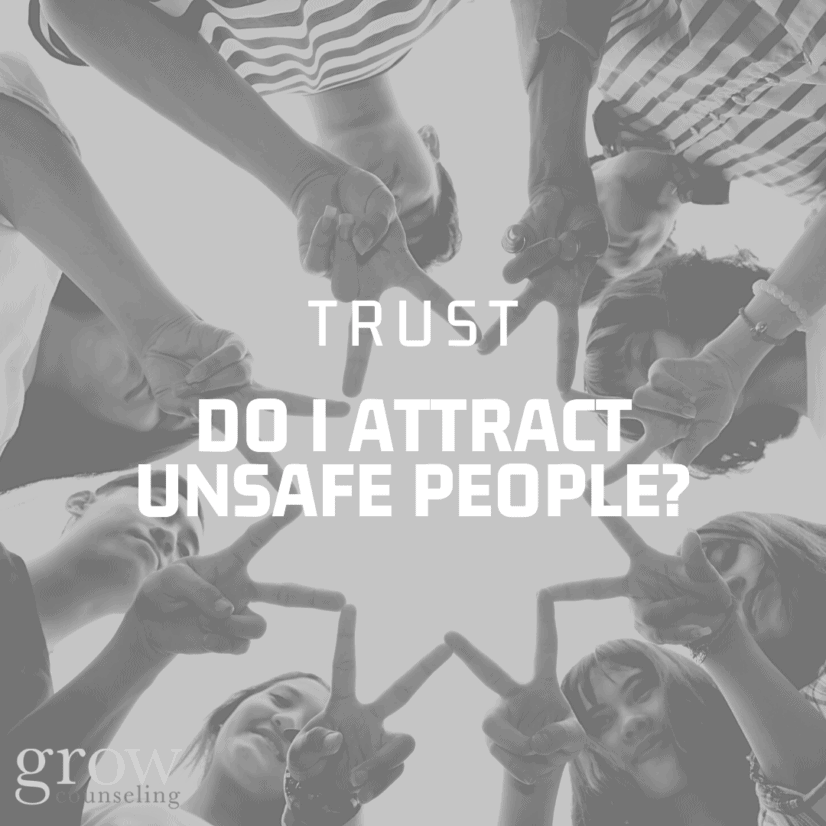When we have a series of hurtful and unsafe relationships, we can begin to lose trust in ourselves. Another common response it that no one is safe or trustworthy. I suggest another and potentially more helpful response, “Am I attracting unsafe people?”
After all, we are the common denominator in our relationships.
It is typically hard for us to look within, but improving character discernment can be a game changer in your relationships and personal fulfillment.
There are a number of reasons as to why we connect with the people in our lives. However, two fundamental reasons we can attract unsafe people are:
- Most of us are unaware of our drivers. By drivers, I mean what motivates us to connect and belong? Many form relationships when lonely, stressed, in need of someone to lift mood, or even to motivate them. Sometimes we seek friends or romantic relationships to fill a parental need. Most of the root system of our drivers comes from the influences and perception of our early childhood. Therapeutic work is suggested to uncover one’s drivers and/or weaknesses. During this process we can grow, mature and move past the unhealthy drivers. Healthy drivers are important to successful relationships.
- The inability to judge character well is significant in whether you are attracted to a safe or unsafe person. One aspect of judging character well is to use reason and emotion. Feelings usually connect us, but this is only part of our skill set of character discernment.
Our feelings are important but incomplete. In their book, Safe People, Cloud and Townsend state, “We get into danger when we ignore our reason, when we find our hearts are attracted to people that our heads know better than to choose.” I find that when my clients are able to make decisions out of their strengths (head and heart) instead of their wounds, they experience greater wellbeing in life.
By breaking the patterns of behavior there will be a sense of freedom and more relational control. Investing in this intrapersonal change can produce great joy and satisfaction by way of healthier relationships and a stronger sense of purpose and value.
Written by: Sheri Schulze

